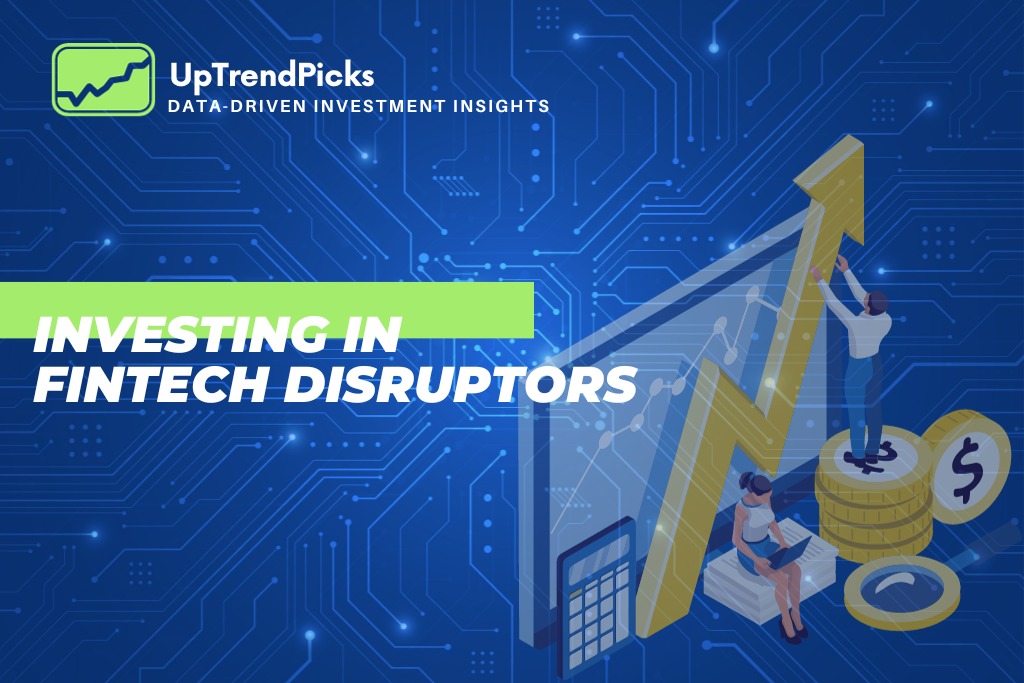INVESTING IN FINTECH DISRUPTORS

The financial world is undergoing a significant shift, marked by the rise of digital wallets as a crucial force in shaping the future of payments. As technology progresses, the impetus toward digital financial solutions intensifies, capturing the interest of investors who acknowledge FinTech disruptors as central figures in this ever-evolving landscape.
The future of digital wallets
Digital wallets, linked to payment cards or functioning as eWallets, have grown in popularity. Juniper Research predicts that by 2026, 60% of the global population will be using digital wallets, highlighting the widespread adoption of virtual financial tools.
The Future trends for digital payments
GlobalData forecasts that mobile wallet payments will reach an astonishing $120 trillion by 2025, growing at a robust compound annual growth rate of 19.9%. The exponential rise in digital payments reshapes the financial landscape, urging investors to explore opportunities within the FinTech sector.
How fintech disrupts the financial industry
FinTech disrupts the banking industry by ushering in a customer-centered approach. Reports from The Economist indicate that FinTech is steering banks toward becoming more customer-centric through Big Data and Artificial Intelligence insights, challenging traditional banking models.
Digital wallets: The future of money
The trajectory is clear—digital wallets are unequivocally the future of money. The digital era has ushered in an unprecedented shift towards instant, hassle-free transactions. Projections indicate a staggering growth of over 5.2 billion digital wallet users worldwide by 2026, signifying a remarkable 53% increase from 2022.
Benefits of digital payments
Digital payments offer many advantages, including convenience, faster transactions, enhanced security, and a global reach. These benefits contribute to an improved customer experience, driving the widespread adoption of digital payment methods.
Future of payments 2024
Looking ahead to 2024, payment providers are embracing customer-centric strategies like buy-now/pay-later, embedded finance, and data-safeguarding tokenization. Additionally, sustainability protocols focusing on eco-friendly payment modes are gaining prominence.
Banking disruptors and industry impact
The financial services industry has witnessed substantial digital transformation through mobile, AI, blockchain, and digital identity verification. However, banks must still catch up on opportunities to leverage these technologies and streamline services, creating a more competitive landscape.
Responding to fintech disruption
Banks must make a crucial decision—whether to fight or flee. Taking a clear stance against FinTech disruption involves directly competing with startups pursuing disruptive innovations or retreating to traditional, lucrative banking practices.
Understanding digital transformation in fintech
Definition: Digital transformation in fintech enables the automation of various processes, allowing for faster and more efficient decision-making.
Fintech in financial services: Fintech, a combination of “financial” and “technology,” describes using technology to deliver financial services and products to consumers across banking, insurance, and investing.
Digital transformation in finance involves reorganizing and reshaping finance and accounting functions using technology to recreate efficient operating systems and processes without replacing traditional ones.
Difference between fintech and digital financial services: Digital banking uses technology like websites and mobile apps to provide banking services from banks. In contrast, fintech banking enables financial services and transaction methods for various financial and non-financial businesses.
Four main areas of digital transformation: Customer experience, data and analytics, business model transformation, and digital operations are the primary focus areas.
Four types of digital transformation: Process transformation, business model transformation, domain transformation, and cultural/organizational transformation are crucial for success.
As digital wallets rise and FinTech disruptors reshape finance, investors navigate a dynamic industry. The future of payments hinges on tech innovations, and strategic FinTech investments open doors to lucrative opportunities. Understanding FinTech’s digital transformation underscores businesses’ need to adapt, leveraging tech for efficient, customer-centric financial solutions.
[Disclaimer: This article is for informational purposes only and should not be construed as financial or investment advice. Any investment involves risks, and individuals should carefully consider their investment decisions. The content of this article does not constitute an offer or solicitation to buy or sell any securities. Readers should consult with their financial advisor or conduct their own research before making investment decisions.]
For more insights and analysis, visit Uptrendpicks.com


